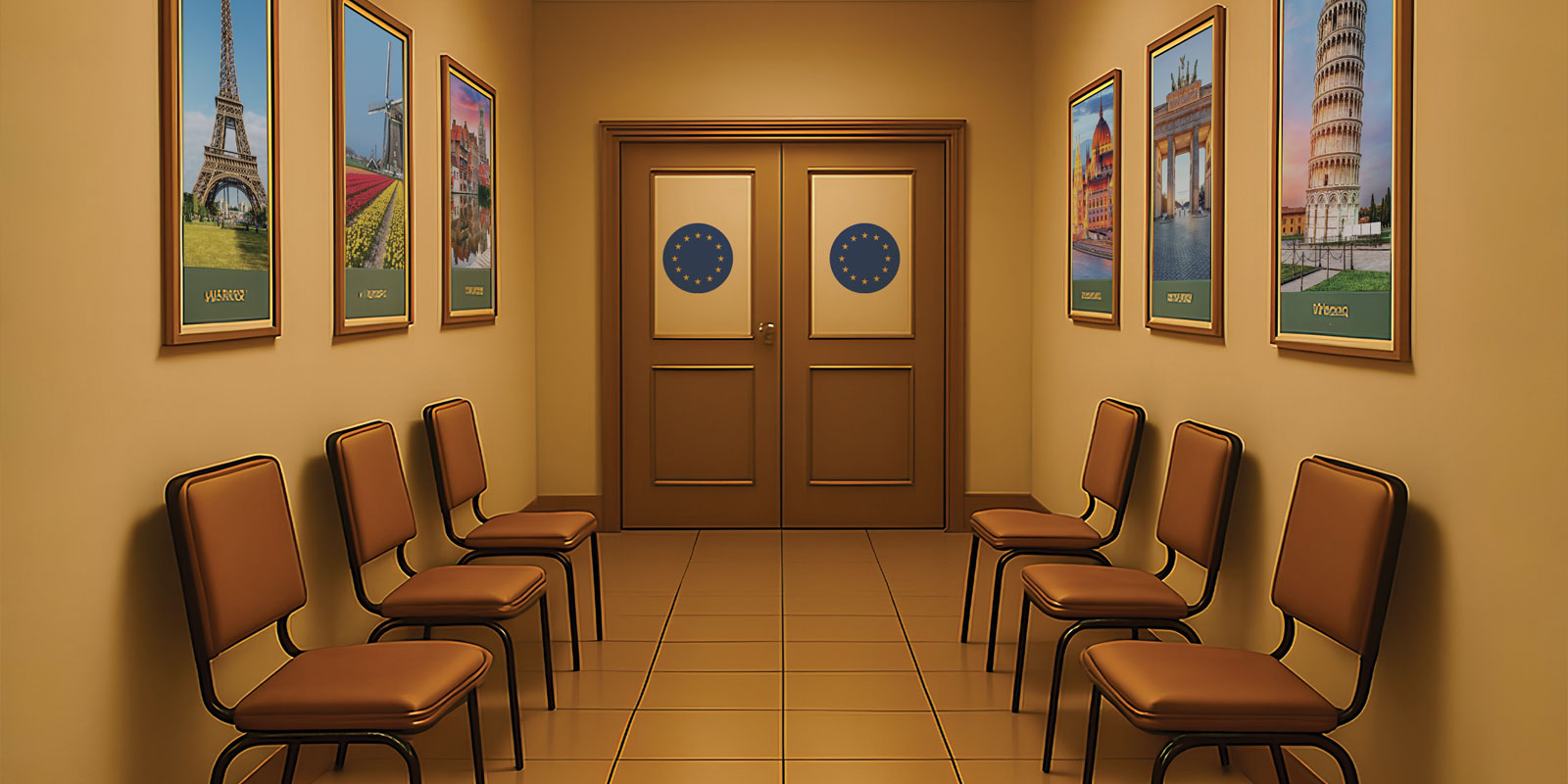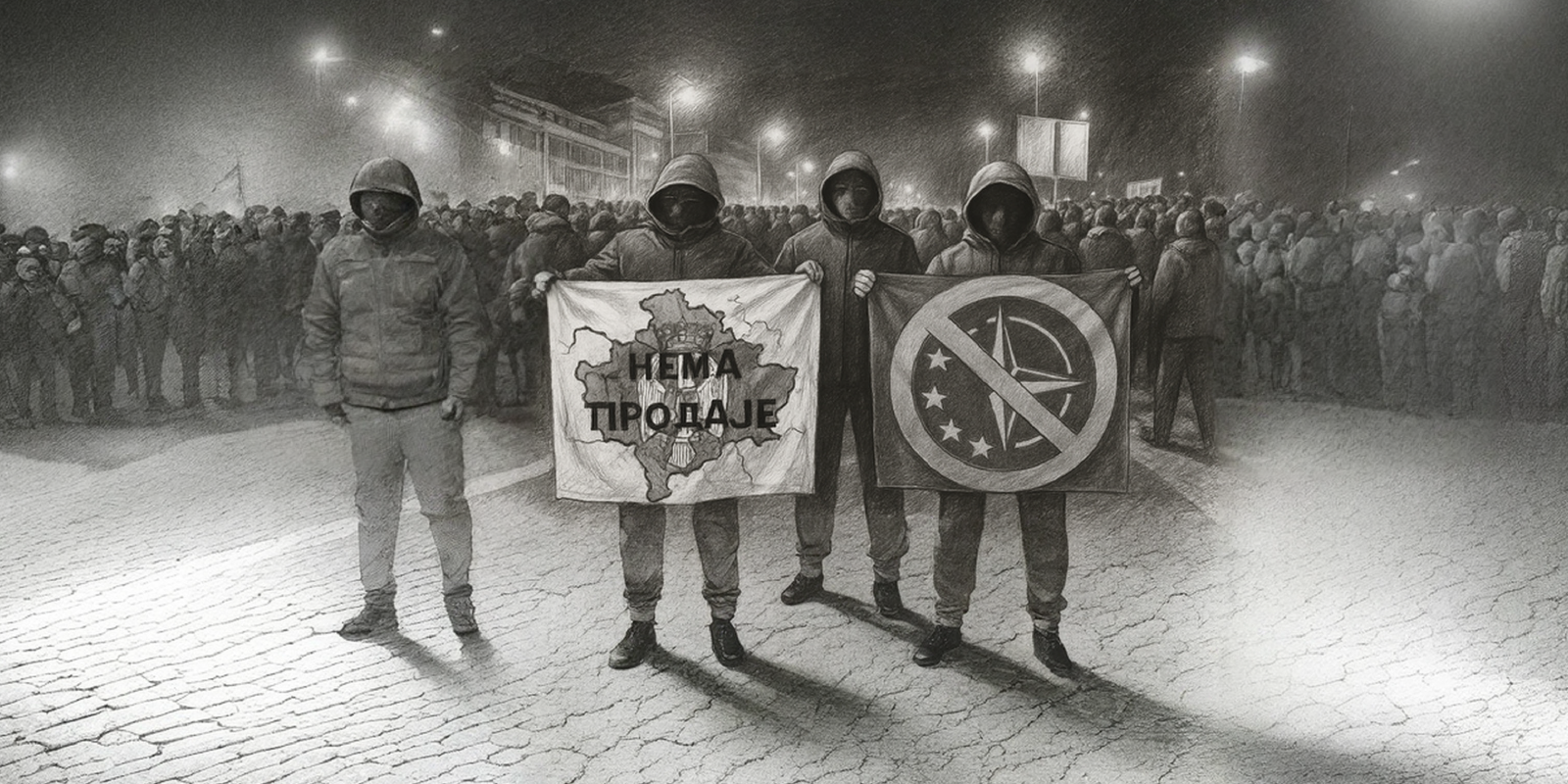PUBLICATION: Blog
The Absence of Transitional Justice and the Growth of Right-Wing Extremism in Serbia
In the territory of former Yugoslavia, the past is still one of the most contentious topics despite the fact that more than 20 years have passed since the conflict ended. The question of how to deal with past crimes and human rights violations tends to open up a wide range of legal, political and psychological issues.
On the one hand, there is a tendency to constantly search for truth as a necessary element of the process of reconciliation and confrontation, most often by establishing truth commissions (such as the Truth and Reconciliation Commission in the Republic of South Africa). On the other hand, people are encouraged to talk only about the positive aspects of the past, leaving the negative ones alone. The crimes of the past are suppressed, ignored and denied, as is the case with the countries of the former Yugoslavia.
Transitional justice implies an entire series of procedures and mechanisms that are used so a society can face committed crimes and systematic violations of human rights. It includes trials held before domestic and/or international courts, political lustration for individuals found to have been involved in crimes, programmes of reparations and compensation to victims, construction of monuments, implementation of institutional reforms (in the army, police, judiciary, etc.) and so on.
Transitional justice offers a way to reconstitute the collective, potentially across racial, ethnic and religious lines. It serves to establish responsibility and achieve justice and reconciliation. In its absence, society ends up feeling deep dissatisfaction and frustration, and citizens who have suffered ill-treatment, loss of loved ones, or other forms of injustice often feel marginalised.
In the case of Serbia, we can note that the implementation of key aspects of transitional justice was insufficient, or in many cases non-existent, considering that almost three decades later, issues from the past are still the subject of political debates and polemics.
The International Criminal Tribunal for the former Yugoslavia (ICTY), in charge of war crime trials, was established at the request of the international community. The ICTY is also one of the rare mechanisms for the achievement of transitional justice. However, the acceptance of the work and decisions of the ICTY by the political authorities and the public in Serbia is largely debatable and subject to controversy.
In addition to the ICTY, since the 1990s Serbia also established several institutions that are expected to contribute to the processes of transitional justice, such as the War Crimes Prosecutor’s Office (WCPO) and the War Crimes Investigation Service (WCIS). The inefficiency and inadequate commitment of these institutions to the achievement of transitional justice is confirmed by the fact that the number of indictments is decreasing from one year to the next, by the constant disregard for the command responsibility of certain political actors, the selective and biased commemoration of events, and by failure to solve the problems of a large number of refugees and displaced persons. Institutional reforms have not been implemented in security agencies, and individuals who were involved in human rights violations during armed conflicts are still present. The absence of transitional justice in the educational system is another problem, so young people are uncritically learning about crimes from the past through biased media sources, internet platforms and social networks that are flooded with misinformation.
The inability of the system and institutions to achieve transitional justice caused a negative reaction in society, where each individual is guided by his/her own “truth”, which makes such an atmosphere fertile ground for the growth of right-wing extremism. In the last few decades on the Serbian public scene, the extreme right – which also happens to be one of the main causes of deep social polarisation – has played an active role in using the “us against them” policy. On the one hand, the extreme right in Serbia promises to provide teachings about the “truth” through the interpretation and simplification of the complexity of political life, while on the other hand, it aims to incite emotions, awaken collective memories and intensify intolerance and exclusion.
Due to the failed transitional justice, the extreme right is succeeding in its intention to create a feeling of hostility towards certain groups or people, most often Bosniaks, Croats or Albanians from Kosovo, perceiving them as “different”, or as “enemies”. A more recent phenomenon, caused by the actions of right-wing extremist groups and now fully present, is that an individual’s belonging to a nation or faith is no longer the unifying factor. Regardless of whether s/he is of Serbian nationality or Orthodox faith, but rather depending on his/her attitude towards “enemy’” groups, an individual will be either accepted or labelled as an enemy of the state, traitor, member of the ‘other Serbia’, foreign mercenary and so on.
Some examples of extreme right-wing movements are: “Srpska desnica” (Serbian Right), “Zavetnici” (Oathkeepers), “Leviathan”, “Naši” (Ours) and “Srbska čast” (Serbian Honour). What all the above-listed movements have in common is that they are strengthening the nationalist narrative and promoting Serbian identity as superior, or threatened by other groups. By disrupting the interaction and efforts of society to build a common understanding of the past and find a compromise with different social groups, right-wing extremism threatens the already failed process of achieving transitional justice. The authorities’ tolerance and mild punishment of their, often violent, actions validate their rise.
The government must investigate and establish the facts and present the truth by officially recognising and acknowledging all the events that took place so that society can better understand its past and properly prepare for the future. Therefore, the fact that the quality and success of transitional justice, besides the context and circumstances, will always depend on the efficiency and determination of the government and other political actors, is extremely important. To achieve real progress in solving problems and achieving justice, it is necessary to have a sincere political will. However, as long as the current government continues to ignore the dangers and risks posed by the growth of right-wing extremism, society will remain deeply divided.
Written by Maša Mihajilović, intern at the Belgrade Centre for Security Policy
Tags:
PDF PREVIEW
RELATED

Date: 22.10.2025.
Author: Jelena Pejić Nikić |
This policy paper examines Western Balkan stakeholders' perspectives on what is needed for meaningful enlargement and the EU reforms they consider essential for an effective expanded Union. Field research in spring and summer 2024 included 16 high-level interviews with representatives from all six countries of the region.

Date: 13.10.2025.
Author: Belgrade Centre for Security Policy
The subject of analysis is the content related to student and civic protests distributed on the Telegram channel “BUNT je stanje duha.”

Date: 04.08.2025.
Author: Vuk Vuksanović |
The analysis is based on the "Security Radar" public opinion survey conducted by the Friedrich Ebert Stiftung in selected European countries, including Serbia, and a comparison of public opinion findings for 2022 and 2025.


